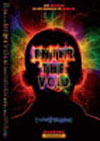"Enter the Void"
 Gaspar Noé's masturbatory Enter the Void could not be a bigger disappointment, nor a bigger fraud. Pretending cinematic and narrative innovation, Noé pirouettes through nearly three hours of sex, drugs, poor acting, and dizzying color schemes in order to achieve a thoroughly mundane experience better told by other writers and directors. On the surface, it's a movie about death, spirituality, and transformation, but the meat of it is just another drug story filled with breasts, banality, and despair. Having a soundtrack that includes Coil, Alvin Lucier, and LFO doesn't help it, unfortunately.
Gaspar Noé's masturbatory Enter the Void could not be a bigger disappointment, nor a bigger fraud. Pretending cinematic and narrative innovation, Noé pirouettes through nearly three hours of sex, drugs, poor acting, and dizzying color schemes in order to achieve a thoroughly mundane experience better told by other writers and directors. On the surface, it's a movie about death, spirituality, and transformation, but the meat of it is just another drug story filled with breasts, banality, and despair. Having a soundtrack that includes Coil, Alvin Lucier, and LFO doesn't help it, unfortunately.
The official preview for Enter the Void promises so much that I should have guessed it couldn't possibly deliver the goods. In only two brief minutes the preview weaves a narrative together that blends psychedelic drug use with the religious beliefs contained in the Tibetan Book of the Dead, plus abstract images resembling exotic flora floating in outer space. Heavy themes like death, spirituality, familial love, and transformation are all suggested by the dialog, and Noé's presentation appears to put emphasis on internal and personal experiences. Interviews only made it look better. Gaspar Noé told The Guardian that 2001: A Space Odyssey was a major influence and other reports mentioned Kenneth Anger, too.
With reviews that proclaimed it "one of the most mind-blowing and ambitious feature films ever made" swimming in my head, I went into Cambridge's illustrious Brattle Theater expecting a good movie at the very least, and a mind-bending, potentially experimental film at the very most. I got neither.
Instead, I was treated to exactly one hour's worth of good storytelling, a half-hour's worth of experimental fun, and almost three hours of tedious drama framed by admittedly inspired directing, great music, and a never-ending parade of terrible performances.
Noé begins impressively, introducing his characters and their predicaments in a slow and immersive fashion. The opening scene, which includes a brief conversation between Oscar and his sister, Linda, is nearly perfect. Instead of just telling me that Oscar is slipping into drug addiction, Noé opts to portray one of his DMT trips, complete with translucent ceilings, biological explosions of light, internal monologue, and a soundtrack that includes an excerpt from Coil's "ANS." For several minutes, Gaspar opens a rift in his film, letting abstract shapes and body-vibrating sounds dominate instead of characters, conversations, or places, and it works incredibly well. But, this is as experimental and successful as the movie gets.
By the time Oscar is killed and leaves his body, Noé has almost run out of ideas. Instead of "entering the void," Gaspar uses his disembodied protagonist as an excuse to explore Oscar's past with Linda, as well as the increasingly desperate lives of his friends. Several "how did he do that?" tracking shots ensue, as do numerous voyeuristic scenes filled with gaudy lighting and strippers. But the narrative doesn't move forward until Noé plumbs Oscar's psyche, dredging up memories that are shot from a perspective just behind Oscar's head. Were the stars less stiff, or at least as convincing as the child actors are, this trip through the past might have been compelling. But they aren't, so I'm left feeling almost nothing for any of the characters.
With the freedom to jump from one memory to another, Gaspar does come up with some astonishing edits, and, for awhile, he achieves a truly unique method of storytelling. Unfortunately, he goes about it for too long and half way through the film he forgets how to connect all the dots. Faced with a dilemma about how to tell his story, Gaspar carves his narrative into awkward fragments and strings them together with beautiful, but mostly redundant images of Tokyo's alleyways and skyscrapers. Thus, he turns a simple story deserving of short treatment into a mock tour de force about the afterlife. Only, the afterlife is a long flashback firmly rooted in the humdrum of drugs, sex, and excess.
Bright, frequently dazzling colors and hypnotic patterns adorn every frame of Enter the Void, from the throbbing sparkle of the opening credits all the way to the bloated, phallic ending, but they serve only to cover up a poorly told story plagued by flat acting, Freudian clichés, and half-baked ideas about death and spirituality. There are other issues haunting the film, including Noé's sexual attitude toward women and men, but especially women. Sex and death have long been linked to each other in interesting ways, but Noé forgoes all of them and fixates almost entirely on intercourse and sexual biology, specifically breasts. His attempt at erotic poetry consists only of special effects radiating from genitals in the penultimate scene, and the only depiction of an erect penis he can muster is a totally comic one.
Gaspar Noé may have genuinely wanted to push boundaries with this movie, but so far as I can tell, he's still very much a child testing his limits.



